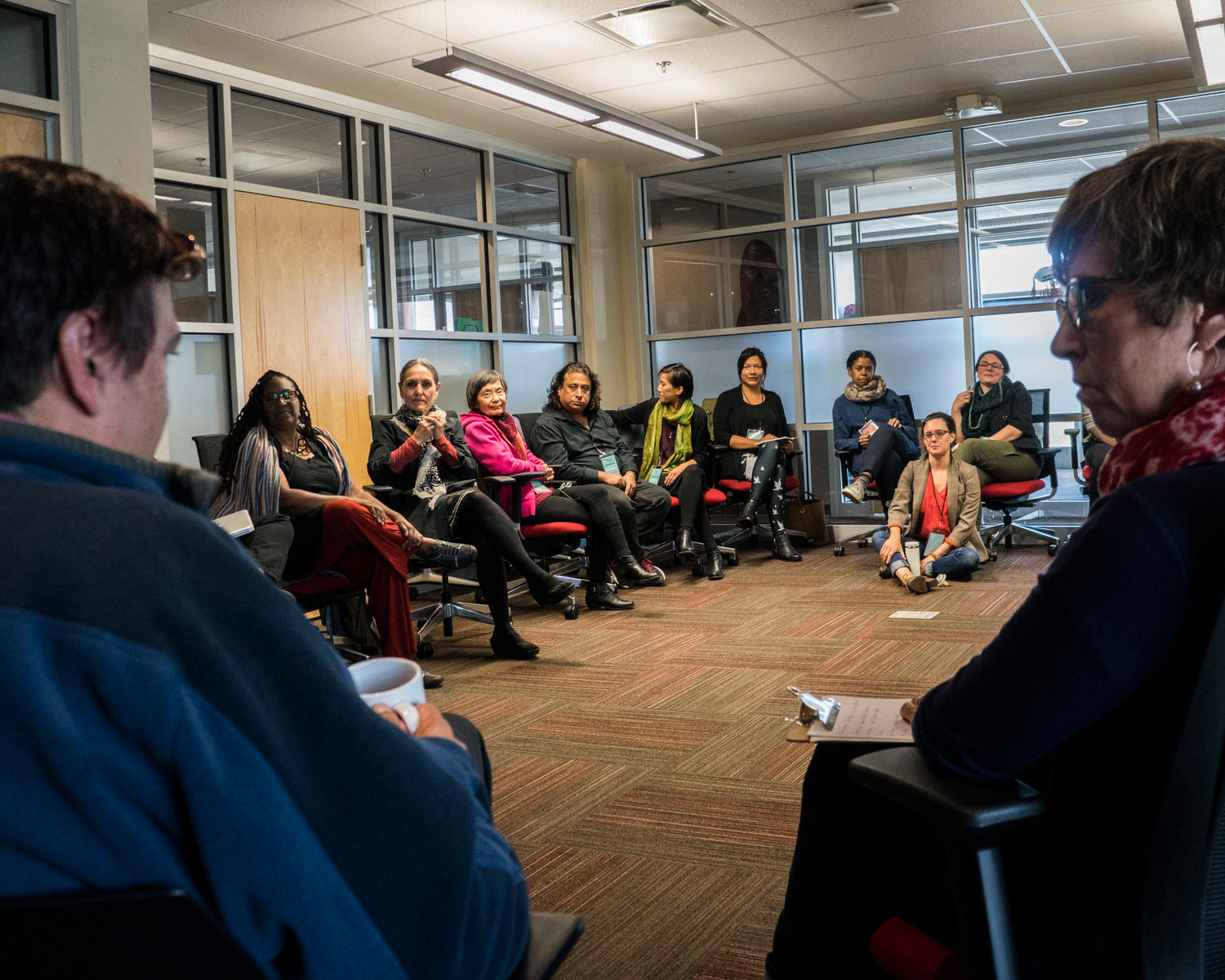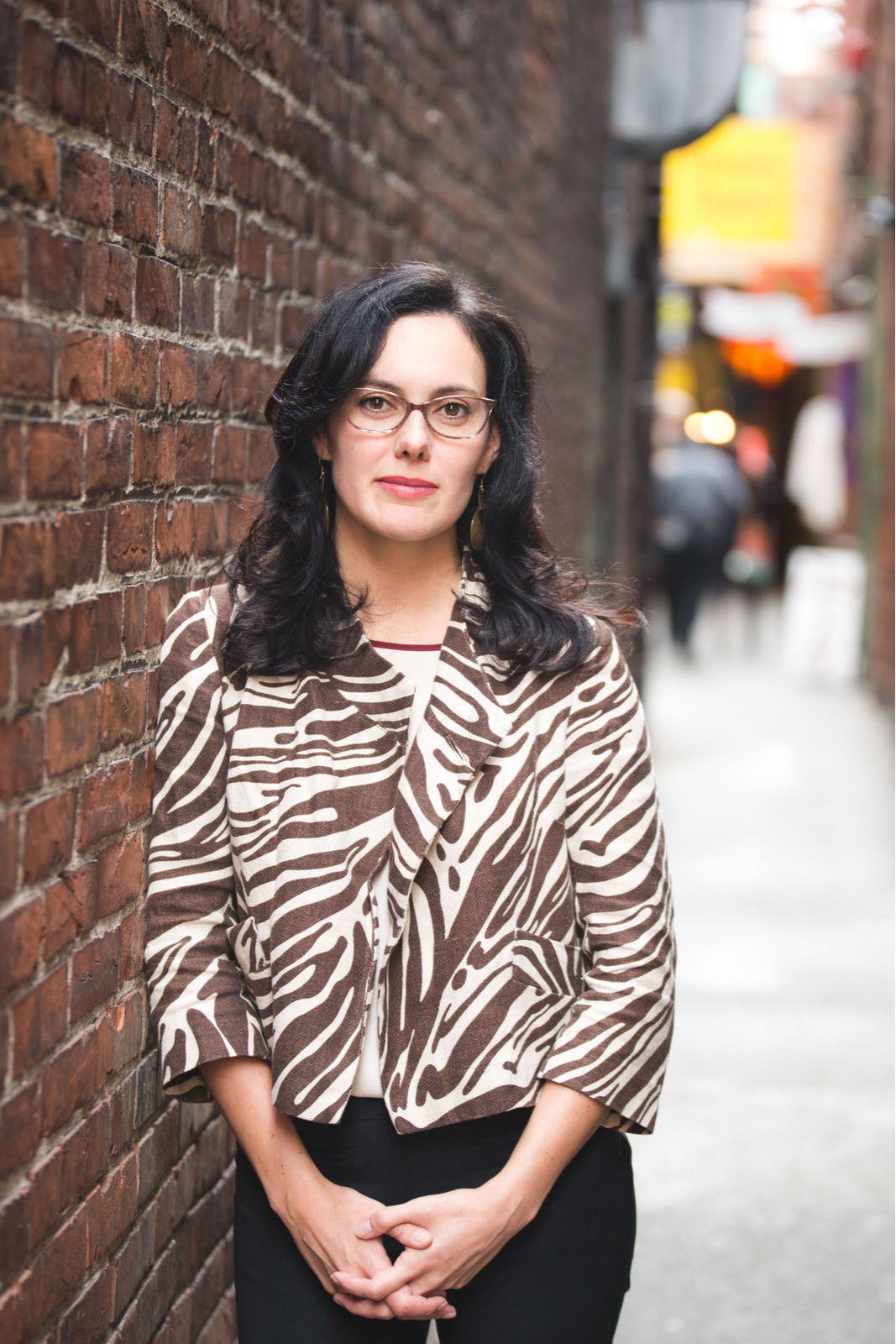.JPG)
Conversations + Creations session during the PC/Cp Gathering
2017 on Lekwungen territory. Photo credit: Kirk Schwartz.
These are deeply meditative questions: what is it to know, to understand, to claim the authority to critique? Our session proved just such a meditation. First, I had the fortune to meet Aliya Pabani, who produces a podcast on the arts, The Imposter, and as an artist herself is currently tackling issues around incarceration in the Toronto area. Meeting Aliya allowed me to broaden my knowledge and experience in a small but concrete way that, as I reflect on the broader themes of our session, offers a model for understanding and knowing.
Aliya and I prepared by getting to know each other and our work. Our brief exchange uncovered shared experiences – about understanding, knowing, and critiquing. We both felt the weight of claiming to know and understand, and the counterpoint of never truly, completely knowing or understanding. From there we shared specific experiences of types, ways, and histories of knowing. We considered experiences of academic knowledge appropriating or (attempting at) erasing Indigenous knowledge. We shared stories of Indigenous knowledge, and means of record keeping and perpetuation. We brought these musings into the room. Both in our conversation and with the larger group, just as the discussion turned to the philosophical, it returned to a specific experience of knowing or understanding.
The larger room had many histories and experiences to share about academic/European-descendant concepts of knowledge creating a boundary around what can be perceived as knowable. These experiences were marked by academic/outside communities attempting to control access and understanding to Indigenous knowledge, and also by Indigenous ingenuity that circumvents or persists in the face of suppression. One example was a commonly used text on floral beadwork. The speaker noted that her and her circle of beaders love the text for the artworks it reproduces, and happily ignore the written word. She understood knowledge to be contained within the materials and patterns themselves. Understanding came through seeing not reading.
This conversation led to an interrogation of authority. We considered the idea that if knowledge is relational and often obscured by the very mechanisms intended to create knowing, then who has/should have the authority to define what is “new”? Who can be the voice of the critic? Does the critic implicitly conform to non-Indigenous ways of understanding? Again, the discussion circled from broad questions to specific examples. One speaker pointed to a fairly recent database that reframes how materials are catalogued using Indigenous frameworks that build relationships instead of categories. He offered a specific, new, Indigenous-centered experience of knowledge defined by Indigenous authority.
Our session arrived at no conclusions, but we collectively offered up one means to understanding. That is, through shared experience. Without delving too far into philosophies of memory, “knowing” might be best arrived at through concrete experiences that, when shared, provide examples of understanding rather than knowing. Critiquing then becomes relative to a set of shared principles, Indigenous or otherwise.
.jpg)
India R. Young, art historian and curator, studies Indigenous art, print media, and emerging modes of reproduction. Her curatorship and writing negotiate feminist, decolonial, and critical race frameworks to track the cultural geography of the contemporary North American art world. Young graduated in 2017 with a doctorate in art history from the University of New Mexico. Currently, she works as the Research Specialist in Native American Art at the Princeton University Art Museum.